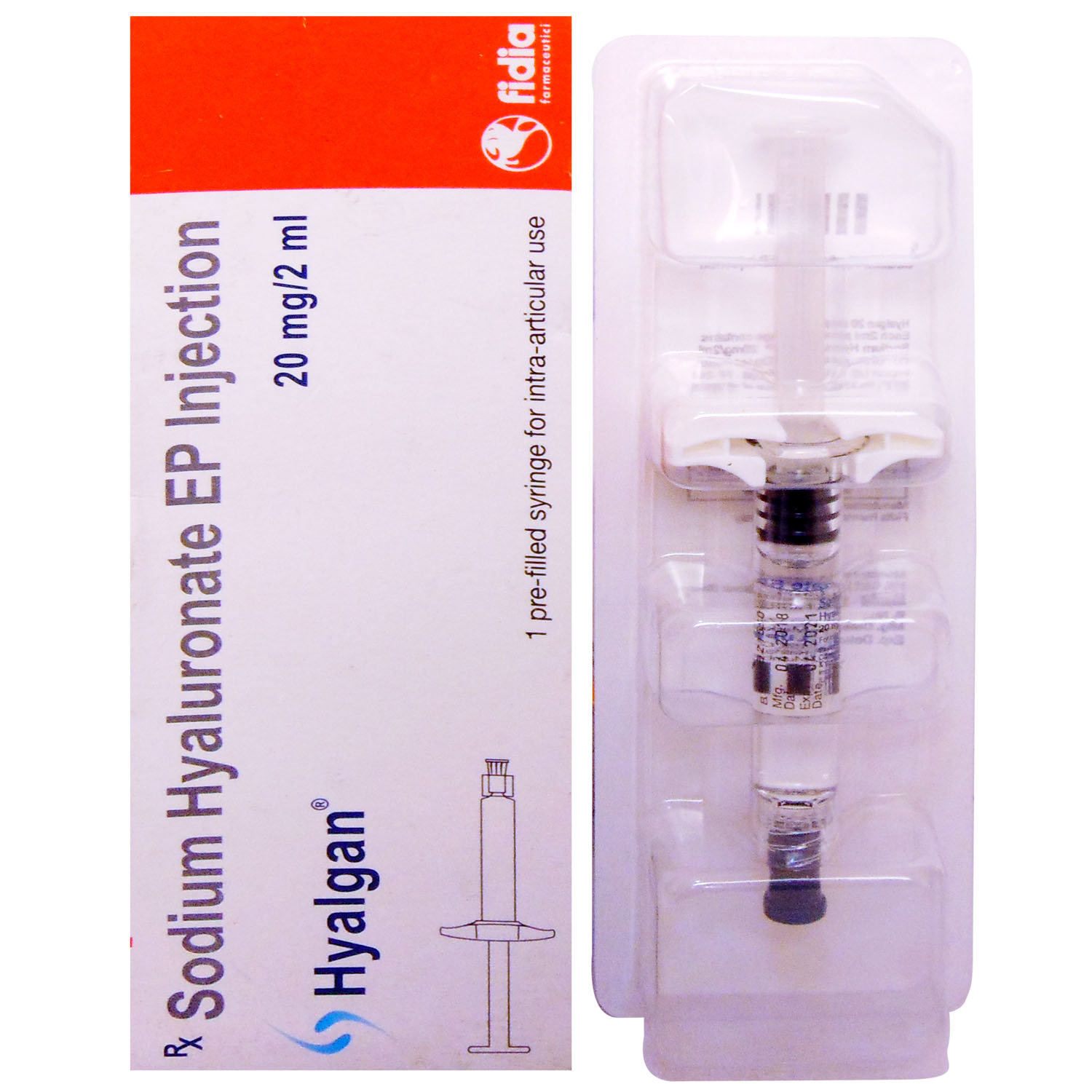Hyaluronic Acid
About Hyaluronic Acid
Hyaluronic Acid is used to provide relief from soreness, irritation, and discomfort due to dryness of the eye. Dry eye is a condition where your eyes do not produce enough tears or the tears evaporate too quickly, leading to dryness, irritation, and discomfort.
Hyaluronic Acid contains hyaluronic acid, which acts like artificial tears to provide long-lasting relief from dryness, burning, and discomfort, helping to keep your eyes moist, refreshed, and comfortable.
In some cases, Hyaluronic Acid may cause side effects, such as temporary blurred vision and irritation. Most of these side effects do not require medical attention and will resolve gradually over time. However, you are advised to talk to your doctor if you experience these side effects continuously.
Do not use Hyaluronic Acid if you are allergic to any of its contents. Hyaluronic Acid is for ophthalmic (eye) use only. Do not swallow Hyaluronic Acid. Avoid touching the tip of the dropper/applicator as it might contaminate the product. Consult your doctor if your condition does not improve after a few days.
Uses of Hyaluronic Acid
Medicinal Benefits
- Hyaluronic Acid provides effective relief from dryness and irritation in the eyes.
- Hyaluronic Acid soothes burning and discomfort caused by dry eyes.
- It helps maintain moisture on the surface of the eyes for long-lasting comfort.
- Hyaluronic Acid supports healing by protecting the eyes from further dryness and damage.
- It also improves overall eye health by lubricating and refreshing the eyes.
Directions for Use
- Hyaluronic Acid is for ophthalmic (eye) use only.
- Wash your hands before and after use.
- Based upon your condition, your doctor will decide how long you need to use Hyaluronic Acid.
- Eye drops: Shake the bottle well before each use. Lie down and tilt your head backwards. Pull your lower eyelid gently with your index finger to form a pocket. Instill the number of drops advised by the doctor into the pocket of the lower eyelid. Close your eyes for 1-2 minutes.
- Eye gel/ointment: Lie down and tilt your head backwards. Pull your lower eyelid gently with your index finger to form a pocket. Squeeze a tiny amount of the gel/ointment into the pocket of the lower eyelid. Close your eyes for 1-2 minutes.
Storage
Side Effects of Hyaluronic Acid
- Eye irritation
- Temporary blurred vision
Drug Warnings
- Do not use Hyaluronic Acid if you are allergic to any of its ingredients.
- Hyaluronic Acid is meant for external use in the eyes only; do not swallow it.
- Inform your doctor before using Hyaluronic Acid if you have closed-angle glaucoma, high blood pressure, diabetes, eye infection or injury, hyperthyroidism, or kidney or liver problems.
- Hyaluronic Acid might blur the vision immediately after using; therefore, avoid driving or operating machinery until your vision is clear.
- Avoid touching the tip of the dropper or applicator to any surface, including your eye, to prevent contamination.
- If you experience eye irritation, redness, or worsening symptoms, stop using Hyaluronic Acid and consult your doctor.
- Do not use Hyaluronic Acid if the solution changes color or becomes cloudy.
- If you are pregnant or breastfeeding, speak to your doctor before using Hyaluronic Acid.
- Do not use Hyaluronic Acid while wearing contact lenses unless your doctor advises it; remove lenses before applying and wait at least 15 minutes before reinserting them.
Drug Interactions
Drug-Drug Interactions: No interactions found/established.
Drug-Food Interactions: No interactions found/established.
Drug-Disease Interaction: No interactions found/established.
Drug-Drug Interactions Checker List:
Safety Advice
Alcohol
consult your doctorIt is not known whether Hyaluronic Acid interacts with alcohol. Please consult your doctor if you have any concerns.
Pregnancy
consult your doctorHyaluronic Acid is probably safe for use during pregnancy. Please consult your doctor if you have any concerns.
Breast Feeding
consult your doctorHyaluronic Acid is probably safe for use during breastfeeding. Please consult your doctor if you have any concerns.
Driving
unsafeHyaluronic Acid may temporarily blur your vision. So, avoid driving or operating machinery until your vision is clear.
Liver
consult your doctorPlease consult your doctor before using Hyaluronic Acid if you have a liver impairment or any concerns regarding this.
Kidney
consult your doctorPlease consult your doctor if you have any concerns regarding the usage of Hyaluronic Acid in patients with kidney impairment.
Children
consult your doctorLimited information is available regarding the usage of Hyaluronic Acid in children. Consult a doctor if you have any concerns.
Habit Forming
Diet & Lifestyle Advise
- Do not wear contact lenses for longer durations.
- Wear sunglasses to prevent irritation that could occur due to sunlight.
- Avoid staring at the digital screens for longer durations. Rest your eyes every 20 minutes.
- Blink regularly, as it helps in the spread of hydrating substances such as mucus and tears across the eyes.
- Avoid prolonged exposure to air-conditioning. Whenever possible, choose to open a window instead.
Patients Concern
Disease/Condition Glossary
Dry eyes: Dry eye is a common condition that occurs when your tears do not provide enough lubrication, leading to inflammation and damage to the eye surface, and it can be caused by issues like autoimmune diseases, hormonal changes, or inflamed eyelid glands, with symptoms including burning, light sensitivity, redness, watery eyes, a gritty feeling, and blurred vision.
FAQs
Hyaluronic Acid is used to provide relief from burning sensation, dryness, and discomfort due to dry eyes. It moistens, lubricates, and soothes the eye surface, making the eyes more comfortable.
Hyaluronic Acid might cause temporary blurred vision immediately after using. So, do not drive or operate machinery immediately after using Hyaluronic Acid; wait until your vision is clear to prevent any mishappening.
Hyaluronic Acid can be used with other eye medications if prescribed by the doctor. However, maintain a gap of 10-15minutes between Hyaluronic Acid and other eye medications.
Do not wear contact lens while using Hyaluronic Acid unless advised by the doctor. If the formulation contains any preservative, remove contact lenses before using and reinsert after 15 minutes of using the drops/gel/ointment.






